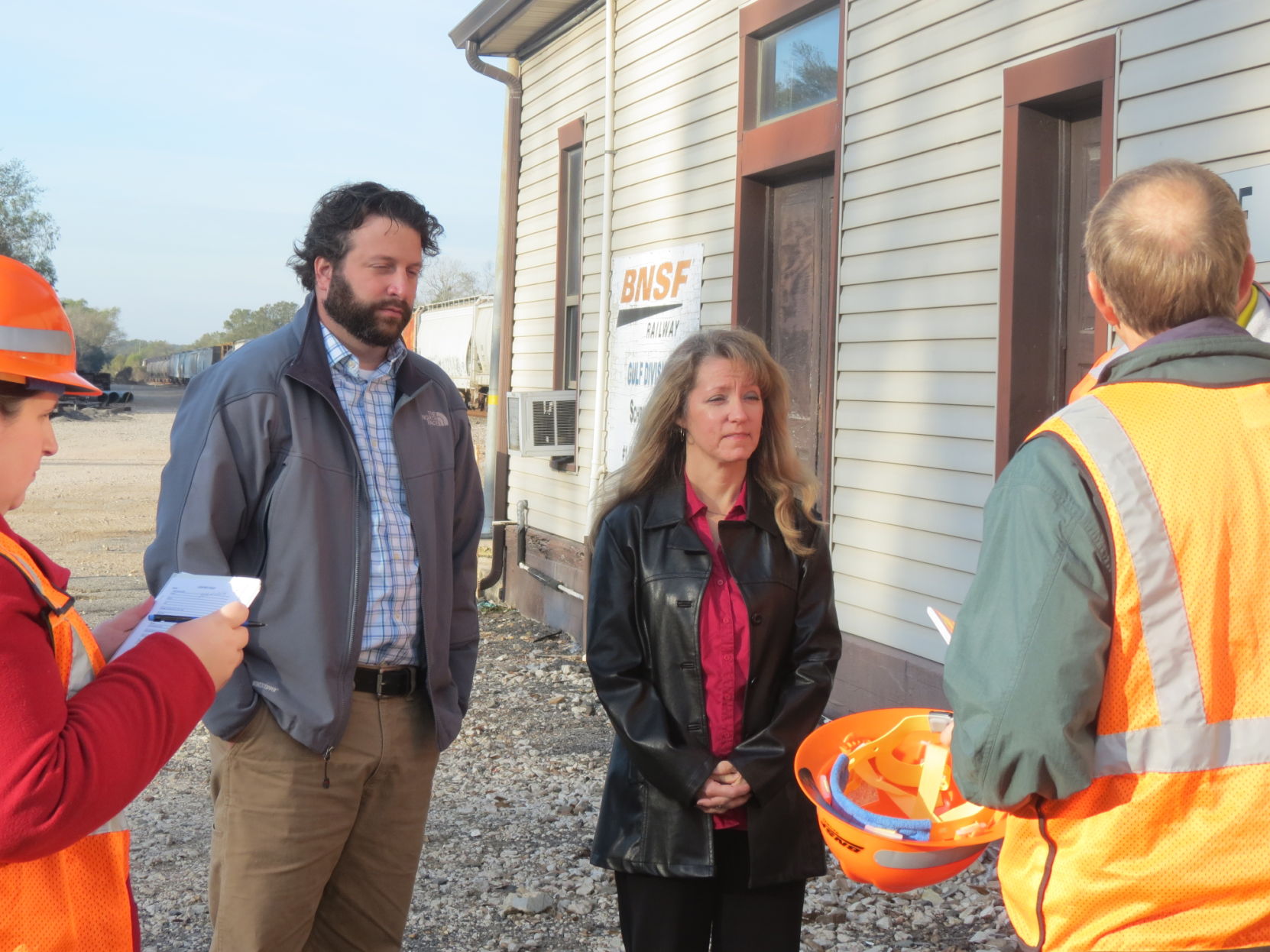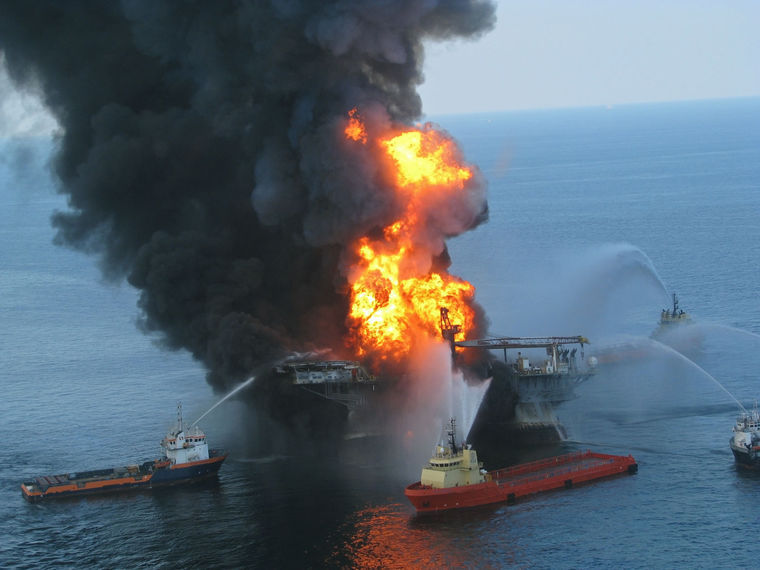
Terrebonne hoping for upgrade to Schriever site
December 16, 2014
Lafourche shelter hosting ‘Home for the Holidays’
December 16, 2014Now that the U.S. Supreme Court has let stand a 5th Circuit Court of Appeals decision that says BP must abide by the agreement it made to pay claims in connection with the Deepwater Horizon oil spill, some local business owners are a step closer to getting long-awaited pay-outs.
For many in the Bayou Region the falling of the claims appeal curtain can’t come soon enough. For others, news of the victory for claimants is welcome to some degree, although they themselves might never see the fruits of it despite their own losses.
“Some people really got hurt,” said attorney Carolyn McNabb, one of many local lawyers to work with claims.
“They haven’t paid a claim for 18 months,” attorney Brian Marceaux said. “We have a claim that has been in review since June of last year. I think now they will move forward. People want their claims moved on. I’m sure BP has been earning interest on the money. I would think they have that money parked somewhere.”
Attorneys and some claimants acknowledge that some people – whether through working on the cleanup, through early claims for which proof was ample or other means, were not only compensated, but in some instances profited from the spill.
BP has stated that fraudulent claims were foisting an unfair burden on a firm that was ready and willing to make good on the debacles caused by its disaster, which an earlier court decision found was a case of gross negligence in many respects.
A key element of BP’s objection to the settlement it had agreed on was a decision by a lower court that actual proof of damage from the spill was not necessary for a claim to be valid. A showing of income lower in 2010 than for the previous year was considered sufficient.
“The Constitution and established class action law preclude certification of a class that includes substantial numbers of claimants who were not harmed by the spill and thus lack standing to bring suit,” a BP statement issued after the U.S. Court of Appeals for the Fifth Circuit let stand the ruling of the district court. “No company would agree to pay for losses that it did not cause, and BP certainly did not when it entered into this settlement. BP will continue to fight to return the settlement to its original, explicit, and lawful purpose – the compensation of claimants who suffered actual losses due to the spill.”
But the U.S. Supreme Court, in refusing to hear BP’s appeal, didn’t see things quite that way.
McNabb is among the attorneys for claimants who say the high court’s decision not to hear the appeal is laudable.
“I think BP underestimated the value, and they negotiated a settlement on that basis,” she said. “They had tons of lawyers who charged them tons of money, and they all signed off on that detail. If they were allowed to change that there would never be such a thing as a settlement anymore. You could enter into a settlement and then – ‘Oh, wait a minute. I didn’t really mean that.’ They have had two tiers to try and recruit the money they are going to pay out.”
David Chauvin, who operates three double-rigged shrimp boats out of his Dulac dock, was paid for some of his damages as well as work done in regard to the clean up.
But a major claim relating to one vessel, the shrimp trawler Captain David, has still not been paid, even though he opted for a settlement early on.
BP auditors said there was a record of a fishing vessel called Captain David that had caught finfish during the claims period.
“It was a vessel named the Captain David, but it was a different vessel, from a different dock, that had landed some tuna,” said Chauvin, who had to hunt down documentation for that vessel – which was not his – before the claim could proceed. It remains stalled.
“So now it’s the end of the road, there are no more appeals,” said Chauvin. “The court may be saying you’ve got to pay now. But at what rate? At what pace?”
That fraudulent claims were filed is something nobody argues. Uncovering of fraud is ongoing and, earlier this month, Attorney for the Eastern District of Louisiana Kenneth Polite announced a guilty plea in an unusual and widespread fraud case.
Charlie English, a 33-year-old LaPlace man who worked as a claims adjuster for BP, entered his plea to one count of conspiracy to commit wire fraud relating to fraudulent applications he made or caused to be made to the Gulf Coast Claims Facility for financial assistance during the aftermath of the spill.
“Beginning in or about September 2010, English provided fraudulent documentation to his co-conspirators who posed as claimants, and submitted and or caused to be submitted, via the Internet, false claims for loss earnings representing that the claimants were employed in a commercial fishing business before the oil spil.
The claimants were not fishermen. English was to share in the claim proceeds in exchange for his help, court papers say. Based on his documents, according to court papers, more than $257,000 was fraudulently paid out.
Based on the fraudulent documentation, the GCCF issued approximately $257,400 to undeserving individuals.
English faces a maximum of five years imprisonment, a $250,000 fine and three years of probation following release.
By contrast, a Houma business owner who will receive nothing for the spill said his endeavor was just getting off the ground when the spill occurred.
Corey Robichaux had developed a business that sold advertisements on restaurant placemats and things were starting to go well until April 20, 2010.
The sudden dry-up of money throughout the Gulf region hit Robichaux hard. Suddenly his clients had no extra money for placemats and the business folded.
“I was just getting cranked up, and couldn’t prove any losses because I had no income for this business from the year before,” he said. “It destroyed me.”
The U.S. Supreme Court reaffirmed a 5th Circuit Court of Appeals decision that says BP must abude by the agreement it made to pay claims in connection with the Deepwater Horizon oil spill.










